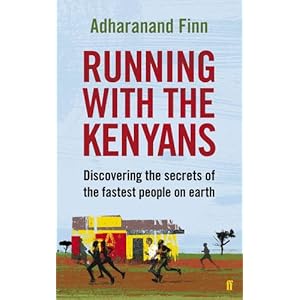 |
| Get running |
I've been jogging for a couple of years. I'm not exactly serious about it but I've done a couple of 10Ks and I enjoy going out two or three times a week. It blows the cobwebs away.
Finn -- his elaborate surname is apparently the byproduct of having two hippy parents -- was a serious cross country runner in his teens. He might have been a contender, but for the fact he went to university and started going to the pub more often than the track.
After rediscovering running in his 30s he decides to give himself a mission: to find out just why Kenyans are so good. The book charts his family's move to Iten, Kenya, which is the global capital of middle and long distance running.
He's not the first to do this.
Finn's book explains how he trains with and gets to know some of the quickest men and women on the planet. He loses a couple of stones in weight. Meets a Catholic cleric who trains many of the quickest runners. Gets a few blisters. Runs a marathon through a game reserve. And learns there isn't really a secret after all. You've just got to run.
It's a terrific book -- and I've featured it in the Big Issue this week (it's out on the streets in the UK now... I will attach a link when it goes on the website next week). It made me want to run more than I do. It also made me a little ashamed of the huge contrast, economically, between us in the "first world" and those in Africa.


